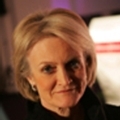When the ASA or CAP is asked to assess that evidence, they may, if necessary, appoint an independent expert to give an impartial and confidential view on whether it supports the claim that is being made. We always aim to find the most appropriate expert to review that evidence, either from the group of experts we use regularly or by seeking out someone new with the relevant expertise.
As well as a general pool of experts, we also have a Panel of experts in the field of Dermatology. The Panel works with Clearcast, Radiocentre and the ASA. Their role is to give a view on whether evidence supports particular claims, and this can be done both before and after a ruling.
Our experts - general
The following experts have all provided recent advice to either the ASA or CAP on a range of different issues. Depending on the claims made we will always seek to find the most relevant expert, and the list will be updated accordingly. Not every expert we use appears on the list.Our dermatology experts
This panel of experts advises the ASA, Clearcast and Radiocentre. It provides advice on the adequacy of evidence supporting claims in ads both before an ad appears and afterwards if the claims are challenged.The panel is intended to:
- Address some areas of disagreement between experts advising the different bodies, which have previously resulted in some ads being found to be misleading by the ASA, when they had been assessed and accepted by the clearance bodies and their own experts
- Reduce disagreement between experts over acceptable standards of evidence.
- Increase certainty for advertisers.
- Increase consumer confidence in advertising claims in the beauty sector.
- Provide consistency between experts through establishing protocols on how scientific evidence for advertising claims should be assessed, with new guidance on test protocols for certain claims in cosmetic advertising, see link below
Although the Panel is intended to increase consistency, its advice does not prevent the ASA from looking into complaints it receives about ads and removing claims that it finds have broken the rules.
All parties (ASA, Clearcast and Radiocentre) seek to use this resource without bias as far as possible. However, we recognise that there are operational reasons that may govern the choice of an expert in some circumstances.
Advertisers and their agencies should not approach the panel directly for any queries they may have. These should continue to be channelled through the appropriate organisation.
Steps in the process
- Pre-Clearance - Expert assesses evidence submission and advises accordingly. In the event that they have queries about a specific issue that needs further consideration by the expert panel, an expert can refer questions initially to another expert or, in the event of disagreement or need for further clarity, to the whole Panel.
- Complaint assessment – ASA Executive assesses complaint and where necessary, will ask clearance body for response. For the initial consideration of a complaint, the ASA will always ask the clearance body to get confirmation from the expert who considered the initial submission that they are still content with the evidence, in light of the complaint. It is worth noting that, whilst the ASA will always seek to resolve any issues of evidence directly, using the expert who has pre-cleared evidence for a submission, there may be possible legal difficulties in using the same expert for an investigation. It might call into question the ASA’s independence and exercise of its own judgement if it is thought to rely on an expert who had already committed themselves to a view for a clearance body, which they might be viewed as reluctant to change.
- Further investigation – If the ASA feels that there is still an issue to be resolved on the point of complaint, then they will use another expert from the panel to help resolve that issue. Examples of potential issues might include:
(a) A complaint throws new light on the data and the advice already received by the clearance body is not relevant or does not cover this point,
(b) The initial expert’s advice leaves significant issues unanswered, and
(c) The claims made in the ad are considered by the ASA to be “significant developments in science” (or “breakthrough” claims), but were considered to be more established claims by the clearance body.
- Disagreement protocols – If there is no consensus between the experts during the course of the investigation, and one or other feel strongly that they disagree with the original assessment, then there is an opportunity to put the specific issue to the panel for a consensus opinion. Please note that whilst this opinion will help inform the decision-making process of the ASA Council, on all matters, including an assessment of how the claim is likely to be interpreted by the consumer, the ASA Council is the final arbiter.
- Panel operation including consensus voting – Issues to be put to the full panel would normally be specific and precise in nature, and would hopefully fall on specific points that can be covered and decided quickly via the use of e-mail. We would not normally expect the panel to consider full submissions of evidence. However, it is recognised that it may be necessary to consider such submissions, in order to gain consensus on a specific point. Decisions will be decided by a majority vote of the panel.
- Expert representation externally – The panel will operate internally to the three organisations with no recourse for external organisations to make representations directly to the panel.














